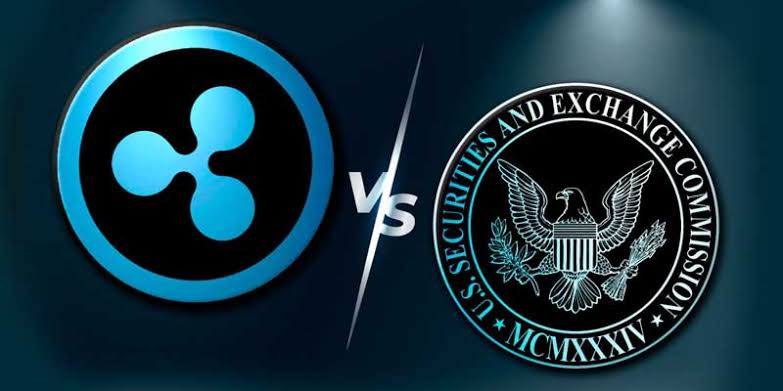The SEC vs. Ripple lawsuit: Everything you need to know

The Securities and Exchange Commission (SEC) filed a lawsuit against Ripple Labs Inc. and two of its executives, Brad Garlinghouse and Chris Larsen, in December 2020. The SEC alleged that Ripple had raised more than $1.3 billion through an unregistered securities offering by selling XRP, the cryptocurrency it created.
The SEC argued that XRP was a security because it was offered and sold as an investment, and that Ripple had failed to register the offering with the SEC. Ripple argued that XRP was not a security because it was used to facilitate transactions on the RippleNet network, not as an investment.
In July 2023, U.S. District Judge Analisa Torres ruled in favor of Ripple in part, finding that sales of XRP on public exchanges were not unregistered securities offerings. However, she also ruled in favor of the SEC in part, finding that the company had violated the law by selling XRP to hedge funds and other sophisticated buyers.
The SEC subsequently appealed Judge Torres’s ruling, but in October 2023, the agency voluntarily dropped its claims against Garlinghouse and Larsen. The agency said it was doing so in order to focus on its appeal of Judge Torres’s ruling on the unregistered securities offering claims.
The SEC’s lawsuit against Ripple was a landmark case for the cryptocurrency industry, and it is still unclear how the case will ultimately be resolved. The SEC’s decision to drop its claims against Garlinghouse and Larsen is a setback for the agency, but it does not mean that the agency has lost the case. The agency is still appealing Judge Torres’s ruling on the unregistered securities offering claims, and the case is still ongoing.
Here is a timeline of the SEC’s lawsuit against Ripple
- December 2020: The SEC files a lawsuit against Ripple Labs Inc. and two of its executives, Brad Garlinghouse and Chris Larsen.
- July 2023: U.S. District Judge Analisa Torres rules in favor of Ripple in part, finding that sales of XRP on public exchanges were not unregistered securities offerings.
- July 2023: Judge Torres rejects a request by the SEC to appeal that ruling.
- October 2023: The SEC voluntarily drops its claims against Garlinghouse and Larsen.
- October 2023: The SEC files an appeal of Judge Torres’s ruling on the unregistered securities offering claims.
The SEC’s lawsuit against Ripple is a complex and important case, and it is still too early to say what the ultimate outcome will be. The case is likely to have a significant impact on the cryptocurrency industry, and it will be closely watched by investors and regulators around the world.
What are the SEC’s claims in its legal brawl with Ripple?
The U.S. Securities and Exchange Commission (SEC) has been engaged in a legal dispute with Ripple Labs since December 2020, alleging that the company sold XRP, its native cryptocurrency, as an unregistered security. The SEC’s claims center around the following aspects:
Unregistered Securities Offering: The SEC asserts that Ripple failed to register XRP as a security under the Securities Act of 1933. This means that the company did not provide investors with sufficient information about XRP and its potential risks, depriving them of the necessary protections.
Investment Contract: The SEC contends that XRP constitutes an investment contract, a type of security under the Howey Test. The Howey Test evaluates whether an asset qualifies as a security based on factors such as investment of money, expectation of profits from the investment of others, and involvement in a common enterprise.
Investor Expectations: The SEC argues that Ripple marketed XRP as an investment opportunity, leading investors to believe that they would profit from the company’s efforts and the increasing value of XRP. This expectation of profits, according to the SEC, further supports the classification of XRP as a security.
Ripple’s Control over XRP: The SEC maintains that Ripple maintains significant control over XRP, including its distribution, listing on exchanges, and marketing efforts. This level of control, the SEC argues, indicates that XRP is not a decentralized cryptocurrency and should be considered a security.
Aiding and Abetting: The SEC initially accused Ripple’s executives, Brad Garlinghouse and Chris Larsen, of aiding and abetting the sale of XRP as an unregistered security. However, in October 2023, the SEC dropped these charges against the executives.
The legal battle between the SEC and Ripple has significant implications for the broader cryptocurrency industry. The outcome could influence how regulators approach the classification and regulation of crypto assets, potentially impacting the future of digital currencies.
Ripple’s response to the XRP court case
Ripple’s response to the XRP court case has been one of defiance and confidence. The company has maintained that XRP is not a security and that the SEC’s case is baseless. Ripple has also been critical of the SEC’s handling of the case, accusing the regulator of overreach and bias.
In July 2023, Ripple scored a major victory when U.S. District Judge Analisa Torres ruled that XRP sales on public exchanges did not constitute unregistered securities offerings. However, the judge also found that Ripple had violated securities laws in its sales of XRP to hedge funds and other institutional investors.
Ripple has appealed the judge’s decision, arguing that the judge erred in finding that XRP is a security. The company has also filed a motion to dismiss the SEC’s case against its CEO, Brad Garlinghouse, and co-founder, Chris Larsen.
ALSO READ: Web3 is not the same as Web 3.0: What’s the difference?
The outcome of the Ripple-SEC case is still uncertain, but it is likely to have a significant impact on the cryptocurrency industry. If Ripple wins, it would be a major setback for the SEC and could embolden other companies to challenge the regulator’s authority. If the SEC wins, it could lead to increased scrutiny of cryptocurrency exchanges and other businesses that deal with cryptocurrencies.
Here is a timeline of key events in the Ripple-SEC case:
- December 2020: The SEC files a lawsuit against Ripple, alleging that the company illegally raised over $1.3 billion through unregistered sales of XRP.
- July 2023: U.S. District Judge Analisa Torres rules that XRP sales on public exchanges did not constitute unregistered securities offerings, but that Ripple had violated securities laws in its sales of XRP to hedge funds and other institutional investors.
- August 2023: Ripple appeals the judge’s decision and files a motion to dismiss the SEC’s case against its CEO, Brad Garlinghouse, and co-founder, Chris Larsen.
The case is still ongoing, and it is unclear when it will be resolved. However, it is likely to have a significant impact on the cryptocurrency industry.
Ripple lawsuit update: The timeline of the Ripple vs. SEC battle
December 2020: The U.S. Securities and Exchange Commission (SEC) files a lawsuit against Ripple Labs, alleging that the company illegally sold XRP as an unregistered security, raising over $1.3 billion.
January 2021: Ripple Labs files a motion to dismiss the SEC’s lawsuit, arguing that XRP is not a security and that the SEC lacks jurisdiction over the case.
August 2021: U.S. District Judge Analisa Torres denies Ripple’s motion to dismiss, but she rules that XRP sales on public exchanges do not constitute unregistered securities offerings.
September 2021: The SEC requests an interlocutory appeal, seeking to challenge Torres’ ruling that XRP sales on exchanges are not securities transactions.
November 2021: Torres denies the SEC’s request for an interlocutory appeal.
April 2022: The SEC files its motion for summary judgment, arguing that XRP sales, regardless of the venue, were unregistered securities offerings.
July 2022: Ripple Labs files its motion for summary judgment, arguing that XRP is not a security and that the SEC’s case should be dismissed.
August 2023: Torres rules on the summary judgment motions, granting Ripple a partial victory. She finds that XRP sales on public exchanges are not securities transactions, but she rules in favor of the SEC on Ripple’s sales directly to institutional investors.
October 2023: The SEC drops its claims against Ripple CEO Brad Garlinghouse and co-founder Chris Larsen for aiding and abetting the company’s alleged securities violations.
November 2023: Speculation intensifies about a potential settlement between Ripple and the SEC.
Current Status: The Ripple vs. SEC lawsuit is still ongoing. The two parties are currently in settlement discussions, but no final agreement has been reached. The next scheduled court date is February 2024, but it is possible that the case could settle before then.
Is the XRP lawsuit over?
No, the XRP lawsuit is not over. The U.S. Securities and Exchange Commission (SEC) dropped its claims against two Ripple Labs executives, Brad Garlinghouse and Chris Larsen, in October 2023, but it is still pursuing a case against Ripple Labs itself. The SEC alleges that Ripple Labs sold XRP as an unregistered security, which is a violation of U.S. law. Ripple Labs denies the allegations and is fighting the case in court.
In July 2023, U.S. District Judge Analisa Torres ruled in favor of Ripple Labs on one of the key issues in the case. She found that sales of XRP on public exchanges were not unregistered securities offerings. However, she also ruled that the SEC had shown that Ripple Labs’ sales of XRP to hedge funds and other sophisticated buyers had violated the law.
Ripple Labs is appealing the ruling on the sales to hedge funds and other sophisticated buyers. The company also argues that the SEC’s lawsuit is based on an outdated interpretation of securities law. The outcome of the case could have a significant impact on the cryptocurrency industry.
Here is a summary of the current status of the XRP lawsuit:
- The SEC has dropped its claims against Brad Garlinghouse and Chris Larsen.
- The SEC is still pursuing a case against Ripple Labs.
- The case is currently on appeal.
- The outcome of the case could have a significant impact on the cryptocurrency industry.
In Conclusion:
the SEC’s lawsuit against Ripple Labs is a highly watched and significant case within the cryptocurrency industry. With the dropped claims against Brad Garlinghouse and Chris Larsen, the focus now shifts to the ongoing case against Ripple Labs. The outcome of this case, which is currently on appeal, has the potential to set a precedent and shape the future regulatory landscape for cryptocurrencies. As the industry continues to evolve and mature, it is crucial for regulatory agencies to adapt their interpretations of securities law to reflect the unique nature of digital assets.







